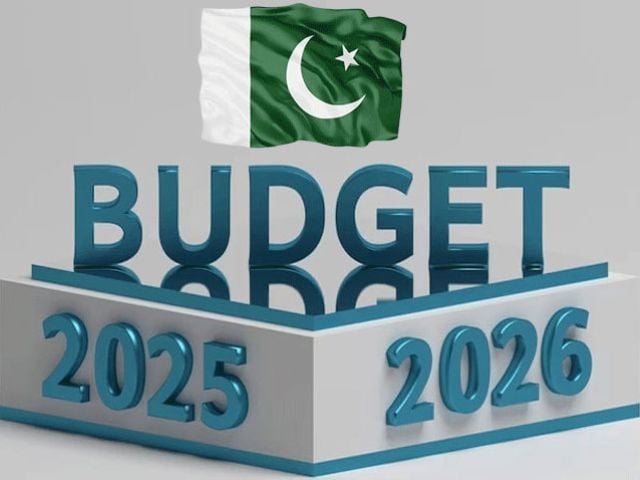Finance Minister Muhammad Aurangzeb is presenting the federal budget for fiscal year 2025-26, emphasising the government’s focus on economic stability and growth.
In his budget speech in the National Assembly, Aurangzeb outlined key economic achievements, saying that remittances have reached $31.2 billion, with projections to rise to $37-38 billion by the end of the fiscal year. The country’s economic growth stands at 2.7%, and inflation has decreased to 4.7%, he claimed.
The finance minister also touted improvements in Pakistan’s credit rating, with Fitch raising its rating to B- and Moody’s signalling positive changes in the economy.
In terms of fiscal policy, the government has made huge strides in tax reforms, aiming to increase the tax-to-GDP ratio, which has historically been low at 10%, according to Aurangzeb.
The introduction of digital integration between the economy and the tax system is expected to improve efficiency. He shared details of measures to combat fraud and increase tax compliance, including blocking over Rs9 billion in fake tax refunds and using AI to identify fraudulent claims involving Rs13 billion.
Simplified tax return forms for salaried people will be implemented starting July 1, 2025.
The finance minister sought to dismiss rumours regarding a mini-budget and clarified that no new taxes have been imposed.
In the power sector, electricity rates have been reduced by 38%, and inefficient power plants with a total capacity of 3,000 megawatts have been shut down. Plans to reduce electricity tariffs further are also underway.
Aurangzeb claimed that the IMF has recognised the government’s efforts to enforce laws, generating Rs389 billion in revenue. In the energy sector, losses in electricity transmission were reduced by Rs140 billion, and privatisation plans for three distribution companies have been finalised.
The finance minister emphasised ongoing efforts in the oil and gas sector, with new hydrocarbon discoveries set to strengthen energy security. Morover, the government is working to establish a competitive electricity market, with legislative action for the National Electric Power Regulatory Authority (NEPRA) expected to begin within three months.
Aurangzeb also spoke about significant progress in Pakistan’s debt management, with the debt-to-GDP ratio dropping from 72% to below 70%. The government has launched Sukuk bonds on the Pakistan Stock Exchange and is preparing to issue Panda bonds in China.
In terms of long-term economic development, the Reko Diq project, set to be completed by January 2025, is expected to generate more than $75 billion in cash flows over its 37-year lifespan and create employment for 41,500 people.
State Bank reserves are projected to reach $14 billion by the end of 2025. The finance minister also underlined that reforms in various sectors, including pharmaceuticals and IT, are expected to benefit the economy, with significant reductions in customs duties planned over the next four years.
In a meeting chaired by Prime Minister Shehbaz Sharif, the federal cabinet approved an increase in the salaries of government employees.
According to reports, the federal cabinet also approved the budget proposals for the upcoming fiscal year.
Finance Minister Muhammad Aurangzeb briefed the cabinet on the budget during the meeting.
When asked by journalists about maintaining fiscal discipline after the budget, Muhammad Aurangzeb responded, “Inshallah.”
Sources indicated that the budget for the upcoming fiscal year may include a 6% increase in government employees’ salaries.
On the other hand, the federal government is considering reducing taxes on five-year-old vehicles in the upcoming 2025-26 budget to make imports more affordable.
Sources reveal that the government is reviewing proposals to ease customs and regulatory duties under the National Tariff Policy.
This includes phasing out additional customs duties and cutting regulatory charges. A reform in the Customs Act’s Fifth Schedule is also being considered to remove non-tariff barriers.
The government’s strategy aims to lower the average import tariff to below 6% by 2030, while also boosting competition in the domestic auto market.
Furthermore, the government is considering imposing excise duties on various everyday items in the upcoming 2025-26 budget, including fast foods, processed food, and beverages. The aim is to increase revenue and curb excessive consumption.
Items like chips, noodles, cold drinks, ice cream, biscuits, and frozen foods could see a 5% excise duty. Proposals also include applying an 18% sales tax on online shopping and e-commerce, bringing digital platforms into the tax net.

